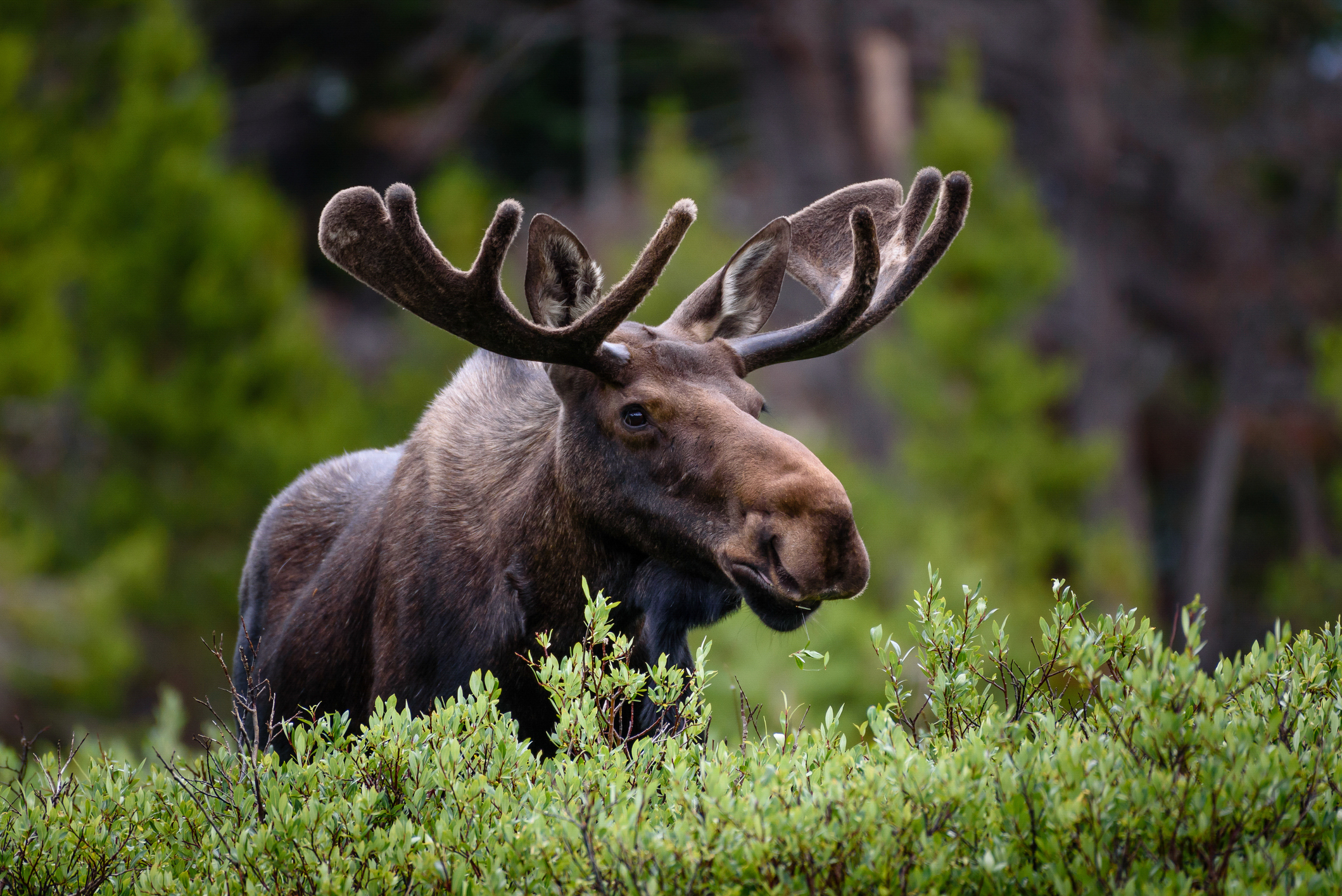Moose eat so much, they may be worsening climate change
Research has found that moose may actually be contributing to climate change. The mammal's enormous appetite (eating up to 60 pounds per day!) may actually be reducing forests' ability to store carbon, The Washington Post writes.
"It was really a surprise to see how much moose can influence vegetation growth, the carbon cycle, and the climate system," said co-author of the study Xiangping Hu in a news release. Moose reportedly consume 10 percent of the Norwegian forestry industry's yearly harvest as well as "alter land cover properties ... with direct implications for the climate," per the report.
"Moose are an ecosystem engineer in the forest ecosystem," said Gunnar Austrheim, one of the study's co-authors, adding that they "strongly impact everything from the species composition and nutrient availability in the forest." Along with eating forest trees which act as carbon sinks, moose feeding also impacts surface albedo or "fraction of reflected solar energy radiation." As the animals eat the trees, they allow more light to reflect off the forest floor, cooling it until the canopy regrows.
Moose have been found to benefit the forestry industry by eating deciduous trees and leaving the coniferous species, which tend to get harvested. "So moose to some extent, are helping them because they're reducing competition," explained Francesco Cherubini, also an author of the study. However, this is not necessarily good for climate change because it reduces the biodiversity of the region as well as the ability to hold carbon.
"I think as we get more of an understanding of how all these different things are interrelated, land managers could come up with an optimal plan," Cherubini remarked. "That could be a much-needed win-win solution for climate, for biodiversity, and for timber value."

No comments:
Post a Comment